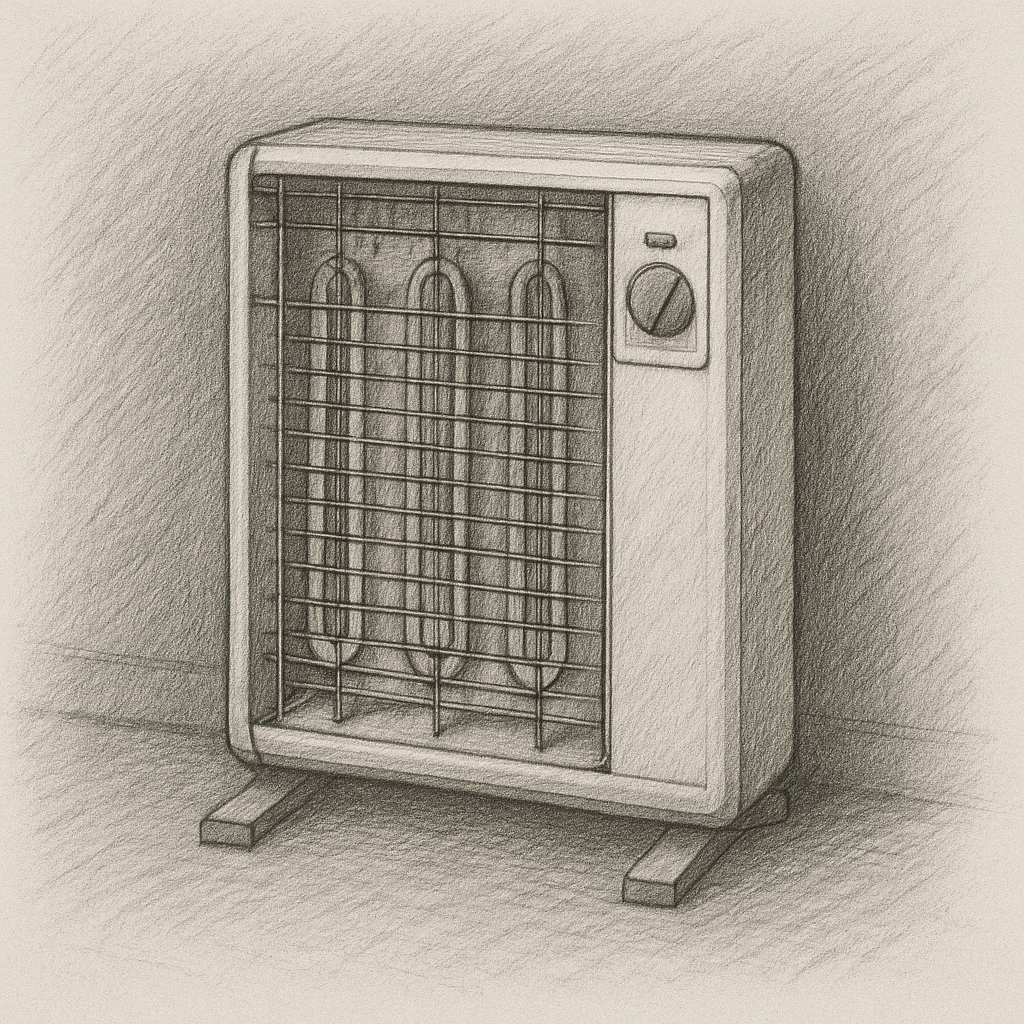Concrete Radiators vs Traditional Storage Heaters
Feature The Poured Project Concrete Radiators Traditional Storage Heaters
Heating Response Efficient — reach temperature quickly Slow - gradual heat build-up
Heat Delivery 360° radiant heat + convection for even, responsive comfort Primarily slow-release radiant heat
Control Designed for day-to-day use with precise, modern controls Limited control - reliant on
overnight charging
Efficiency Releases heat efficiently when needed Can waste energy if stored heat
isn’t fully used
Servicing & No hidden servicing or maintenance fees Often require upkeep, repairs, or
Maintenance No dust traps for difficult cleaning replacement parts
Longevity Exceptional life expectancy — 85+ years Limited lifespan, often 10–20 years
Safety Water-safe, fire-safe, and completely silent Can create hot spots, noise and
safety concerns
System Compatibility Can be used exclusively or seamlessly Typically standalone
alongside existing heating systems and inflexible
.
Design & Aesthetics Sculptural, luxury concrete finish; complements Bulky, utilitarian design
heritage and contemporary interiors
Models Available 15W, 300W, and 600W — Limited, older specifications
with 600W as the most popular choice
Concrete Radiators vs Open Element Electric Radiators
Feature The Poured Project Concrete Radiators Open Element Electric Radiators
Heat Delivery 360° radiant heat + convection for Intense direct heat, uneven distribution
consistent, even warmth
Air Quality No fan assist, does not trap or circulate Can dry out air, circulate dust and allergens
dust
Safety Water-safe, fire-safe, no sharp edges Exposed hot elements, higher burn and fire risk
Can at times smell of burning
Noise Completely Silent Often emit clicks, hums or crackles
Durability 85+ year life expectancy, resistant to Prone to wear, corrosion and shorter lifespan
damp.
Maintenance No hidden servicing or maintenance fees May require servicing or replacement
Design Sculptural, stylish, complements both Functional, utilitarian appearance
heritage and modern interiors
System Can be used exclusively or alongside General standalone
Compatibility existing heating systems
Models Available 150W, 300W, 600W- Limited standard wattages, less flexibility
600W most popular
Concrete Radiators vs. Infrared Heaters
Feature The Poured Project Radiators Infrared Heaters
Heat Delivery 360° radiant heat + convection for full, Direct line-of-sight heat - warms
even room comfort surfaces/people but not the whole room
Coverage Warms the entire space consistently Limited range; heat drops off quickly outside
direct beam
Comfort Gentle, enveloping warmth similar to natural Can create hot spots and uneven warmth
sunlight
Air Quality No fan assist, doesn’t move allergens or Some models may dry the air and increase
dust circulation of particles
Safety Water-safe, fire-safe, sculptural design with Exposed hot elements or panels can be a
no sharp edges burn risk
Durability Life expectancy 85+ years and unaffected Shorter lifespan, typically 5-15 years
by damp depending on build
Maintenance No hidden servicing or maintenance costs May require bulb/panel replacements
over time
Design Sculptural, luxury aesthetic; complements heritage Functional, slim-panel design, less of a
and modern interiors design feature
System Works alone or alongside existing heating Usually standalone with limited integration
Compatibility systems
Models 150W, 300W & 600W Various wattages, often higher for larger
Available coverage



